Staff
The staff at Dakota Rural Action are committed to the ideal of Community Organizing to create a better South Dakota, ag economy and to protect South Dakota resources.
Below is a super-simplified breakdown of what the various staff types do within Dakota Rural Action:
The Staff Director works to keep all the staff focused on the objectives of the Board of Directors and the membership at-large. He’s the lead organizer for the Board and various committees. He also works with fundraising and grants, budgeting, and many other aspects of leading the organization’s administrative and organizing areas. All staff report directly to the Staff Director.
Community Organizers work with the members of Dakota Rural Action, staffing the various DRA chapters and issue committees, facilitating meetings and programs, facilitating training sessions, planning and evaluating campaigns and programs, identifying and developing member leaders, making referrals and suggestions, helping chapters or committees develop strategy, writing reports to enhance communication with the Board, doing group troubleshooting, as well as analysis and research. They also implement fundraising into their work to provide the general funds to do what the membership hopes to accomplish.
For more information on Community Organizers, go to the Western Organization of Resource Councils Resource Page.
Fundraising and Program Support staff work to keep the organization’s administrative arm in top shape, bringing in funds by working on grant proposals, fundraising planning and coordination and membership dues, other aspects of membership development, fundraising for special events and DRA promotion, printing, the membership database, mailings, HR, bills, accounts, IT and the DRA web presence, and other clerical and support work. They also organize members to work on fundraising, events and other special-duty clerical teams. In truth, almost all staff at DRA organize to some extent. This makes us all aware of who makes up the organization: Our Members.
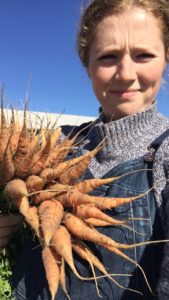
Katie Stahl Special Projects and Membership Coordinator
Katie serves as DRA’s lead staff person planning the South Dakota Local Foods Conference. Originally from Sioux Falls, Katie was ready to move back to the prairies of South Dakota after spending four years in Waco, Texas, where she and her husband (DRA organizer Chase Jensen) graduated from Seminary. While in Waco, Katie became passionate about cooking with local food, gardening, and creating a more sustainable lifestyle. This led her to a non-profit farm, where she managed a 2-acre market garden for a CSA, Farmers Market, and veggie Rx program, and spent her (rare) free hours dabbling in canning, soap-making, and lard-rendering. She is excited to set roots down and bring her passions back home.
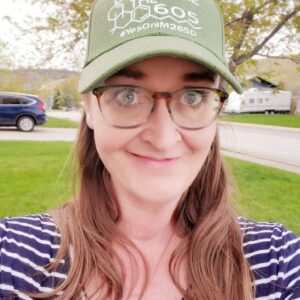
Liz Tiger Energy Organizer
Liz is a 5th generation South Dakotan born and raised in the shadow of He Sapa (the Black Hills) where she and her family reside today. Having always felt pulled towards helping the people around her, Liz has spent the last decade organizing various efforts in her local communities and across the state. This work has included engagement in civic involvement on all levels of government (municipal/county, district, and state), targeted community aide projects, state-wide election campaigns and event coordination, as well as advocating for and with medical cannabis patients and parents of children with disabilities. During this work Liz has had the pleasure of working with folks from areas across all of South Dakota and globally.
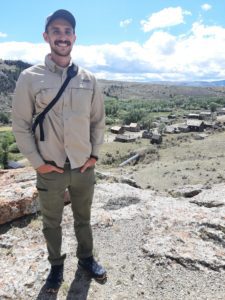
Chase Jensen Senior Organizer
Chase was raised in MN and NE before attending the University of Sioux Falls. He spent four years in the Texas heat studying at Truett Seminary at Baylor University. He most recently served as the Director of Education at a non-profit farm where he developed educational gardens, taught community classes, led programs focused on food insecurity and food justice, and co-directed a residential farm internship. In the spring of 2023 Chase and his wife Katie Stahl formed Chickadee Farm, a small diversified vegetable farm in Brookings, SD, and sell produce at the local farmer’s market.
Chase serves as the DRA lobbyist, the lead organizer on the carbon pipeline campaign, and the Community Energy Development Committee organizer.
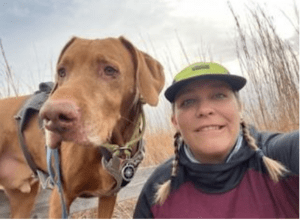
Melissa McCauley Political Organizer
Melissa joined DRA before the 2024 session to add capacity to the legislative program, having previously lobbied for South Dakota Voices For Peace and LEAD South Dakota. Over the past seven years, she has been dedicated to the nonprofit sector in South Dakota.
When not working, you’ll find Melissa outdoors with her faithful
companion Ralph the Vizsla by her side. Together, they explore the world, rain or shine.
Frank James Staff Director
Frank James is currently Dakota Rural Action’s Staff Director. He began organizing in the late 1990s with DRA. Since then he’s been the Staff Director at the Idaho Rural Council and a Regional Organizer with the Western Organization of Resource Councils.
He has been DRA’s Staff Director since 2006.
Frank was raised on a South Dakota family farm in Day County and farmed with his family for four years before returning to Dakota Rural Action.
Frank has experience building organizations, training staff and members, building coalitions and developing grassroots strategies.
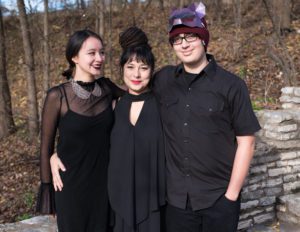
Eowyn Corral Strategic Advisor
Eowyn Corral joins the Dakota Rural Action staff team to tame the administrative beast that is all things bookkeeping and Quickbooks. Bringing administrative sanity to those passionately engaged in local foods, as well as the arts, is nothing new to Eowyn, who brings years of Small Business Administrative and Accounting experience to Dakota Rural Action.
Originally from southern California, Eowyn lived for ten years in Austin, Texas. An artist and new homesteader herself, Eowyn and her family recently moved from Austin to South Dakota in order to pursue her dreams of raising the fiber animals needed to produce her felting and textile arts.
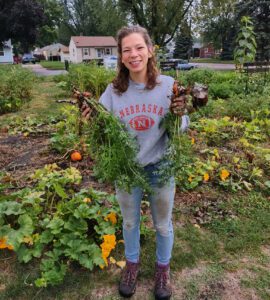
Megan EisenVos Community Organizer
Having grown up on a small, rotationally-grazed beef farm in a family of regenerative and organic producers in Southeast SD, Megan has a foundational love of farming and rural communities. Before her organizing work, Megan worked for the Supplemental Nutrition Program for Women, Infants, & Children (WIC) as a Registered Dietitian. Recognizing that the system is not built for producers to make enough to meet the bottom line nor for consumers to easily access quality, nutritious food, she stepped into a role as a food systems organizer for Dakota Rural Action to be part of systems change through grassroots power for a more just and equitable food system.
Megan co-owns and operates an urban vegetable farm (IronFox Farm) where she and her husband hold Farm to School and community education programs in Sioux Falls, SD. She also serves as the State Policy Specialist for the SD Academy of Nutrition and Dietetics. She holds a BS from the University of Nebraska-Lincoln and MS in Nutrition from Marywood University. Megan gets her joy through playing Ultimate Frisbee, baking bread, and sharing it with others.

Gabbi DeMarce Community Organizer
Gabbi DeMarce (she/they) based in Mni Luzahan/Rapid City, SD, serves as a Food Systems Organizer for Dakota Rural Action. Post-university with a B.A. in Environmental Studies emph. in Sustainable Agriculture and Education, they spent the next few years developing a new garden education program at a local nonprofit serving youth and families, providing curious minds and hands with nourishing and empowering opportunities to grow and eat fresh foods.
Gabbi is currently pursuing a Masters of Science in Sustainable Food Systems and Food Justice from Prescott College.
Gabbi’s experience in and affinity for program management, curriculum development and education, relationship-building, community-based projects, organization, and leadership lend itself to an exciting organizing career. Their wicked sense of humor and sarcasm is just a bonus.
They are committed to daily rituals of movement, like dancing, yoga and the gym, to creative practices like mixing music, graphic design and knitting, and to immersion in the granite and ponderosas of the He Sapa/Black Hills.
